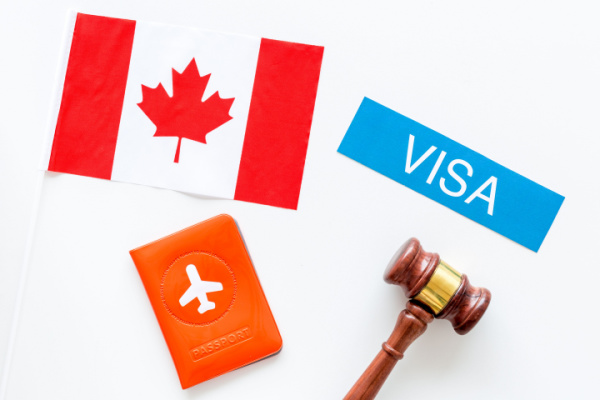Everything you want to know about Canada Education Consultants in Muradnagar
Canada has been beaming with kids who have chosen the country as their destination for education. Canada is known as the hub and global destination for education. Not just high-class education, Canada also offers the most lucrative job opportunities and a higher standard of living. If you dream of a future in Canada, you have arrived at your destination. At Sulekha, you will get a chance to choose from 7 verified Canada education consultants in Muradnagar. These study Canada education consultants in Muradnagar will help you through the admission process to the desired college.
Benefits of Migrating to Canada for studies
Canada is ranked amongst the best education destinations in the world consistently due to its innovative approach towards learning and the quality of students' life. World-class universities, relaxed immigration, easy to acquire post-study work visas, and PR make it one of the most opted countries for Indian students and making Canada a popular choice for international students to study abroad. Canadian Universities offer internationally recognized degrees, affordable tuition fees, high quality of classroom instruction, Post-study work options, and routes to gain permanent residency.
Out of 10 lakh Indian students going abroad for higher studies, 20% opt for Canada as their preferred destination for higher studies. Indian students benefit the most from Canadian migration programs that quickly become permanent residents and settle in the country. Through top and verified study abroad, consultants charge a minimum commission on one-year and two-year bachelor's programs that include internship, post-study work visas, and guaranteed jobs with an average salary of 30 lakhs INR. The average tuition fee for Indian students studying in Canada is between 1, 50,000INR to 3, 00,000INR.
COVID-19 Guidelines to Study in Canada
International students in 2021 may enter Canada to pursue primary or secondary education through universities and schools or a degree program for post-secondary education. Most Canadian universities have confirmed to be ready to safely host international students as per the conditions ruled in the Quarantine Act and Emergency Orders to minimize the risk of exposure to COVID-19.
During the 2020 and early 2021 COVID-19 outbreak, many international students studying remotely from India were asked to accept a Canadian work placement and begin working remotely from India or work for an Indian company as directed by the university. Now the Canadian government has again allowed international students to work in Canada.
Internships at Canadian Universities
When selecting a course in Canada, opt for a study program that includes work experience as part of their curriculum. To apply for an intern or co-op work permit, you require the following mentioned
- A valid study permit/Student Visa
- Internship or Co-op work required to complete must be included in your study program.
- A letter from your university/college to confirm your program requires work placements to complete the course/degree.
- The co-op work placement or internship must not exceed 50% of the total duration of your study program.
Once you have attained all the above, you can legally work/intern in any Canadian or international company in Canada. Start searching for an internship position/program online by applying to postings on various job sites with your resume and cover letter.
Eligibility and Requirement
Students Visa
- Submit an online application for the Canada Study Visa on the website of the Citizenship and Immigration Canada
- You can also submit a paper-based Visa application to the Canadian embassy.
- Provide a Letter of Acceptance from a Designated Learning Institution (DLI). It refers to a University/College recognized by the Government of Canada.
- Evidence to adequate funds for supporting your studies in Canada, including living expenses and tuition fees
- Have no criminal records
- Provide medical records of good health and covid test and vaccination reports.
- Required English proficiency test scores
To get Canadian students Visa, you will require a minimum of 5.5 bands in each of the 4 IELTS segments and an overall 6.0 plus score for Undergraduate Courses. Graduate courses require a minimum of 6.5 IELTS bands score.
Scholarships in Canada
Scholarships are one of the best ways for students to seek financial help for education in Canada. There are various scholarship programs available for international students and Canadian students offered by the universities, the governments of Canada, private organizations, and more. Some of the scholarships offered are as follows:
Government Scholarships:
- IDRC Research Awards
- Banting Postdoctoral Fellowship
- Canadian Studies Post-Doctoral Fellowship
- Canada-ASEAN SEED
- Vanier Graduate Scholarships
- Partnership Grants by the Social Science and Humanities Research Council in Canada
Non-Governmental Scholarships:
- Trudeau Scholarships and Fellowships
- Anne Vallee Ecological Fund
Scholarships offered by various Institutions:
- Lester B. Peterson Scholarship
- UBC International Leader for Tomorrow Award
- University of Waterloo International Funding
- SFU Financial Aids and Awards
- Western University International President’s Entrance Scholarship
- York University Automatic Entrance Scholarship
- University of Alberta International Scholarships
- University of Manitoba Scholarships
- Quest University International Scholarships
- University of Calgary International Scholarships
- Dalhousie University Scholarship
- Carleton University Scholarship
Admission Intakes in Canada
The following are the admission intakes followed in Canada:
Fall Intake:
The fall intake or the primary intake is the most common intake that usually takes place in the month of September. Most of the universities open their applications for various undergraduate and postgraduate programs. The deadlines for these fall applications are usually around January and March.
Winter Intake:
The universities in Canada offer admission to some of the courses during this winter intake. Students who missed the fall intake can use this winter intake as an opportunity to get admitted into universities in Canada. This intake opens by January and has application deadlines between the months of May and September of the previous year.
Summer and Spring Intakes:
Some institutions offer summer or spring intakes for some specified courses. This is especially true for programs in the English language, certificate courses, and short-term courses. The application deadline is usually during the winter or fall of the previous year.

Why Sulekha
Sulekha is India's most efficient and affordable premier listing service. When you choose Sulekha, you get the best offers available in the market and negotiate your terms with the top service providers. Our professionals guarantee 100% customer satisfaction while delivering the service on-time.



















